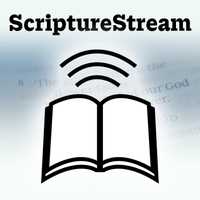- Introduction
- Matthew 7:1-2
- John 7:24
- This shows the importance of taking a passage in context.
- Judging that is right
- Two things are indispensable for judging to be right:
- Right standard
- Right motives
- Of civil courts – Romans 13:1-4
- Of church on ungodly members – I Corinthians 5:1-5
- Of individual judgment on wrongdoers – Matthew 7:15-19
- Recognizing and correcting faults of a brother – Galatians 6:1
- Preaching that draws a line between good and bad – II Timothy 4:2-4; I Thessalonians 5:21-22
- Identifying false teachers – II Peter 2:1; I Timothy 1:20
- Two things are indispensable for judging to be right:
- Judging that is wrong
- According to appearance – John 7:24
- By a standard by which you are not willing to be judged – Romans 2:2; Matthew 7:1-2
- By a standard which you set up – James 4:11
- By a standard that any man sets up – Romans 3:4
- Judging by right standard but with wrong motives – Philippians 1:15-16
- Causes of unjust judgment
- An effort to build self up while tearing another down – Luke 18:9-14
- Envy and dislike – Matthew 27:18; I Samuel 18:7-9; Esther 5:9-14
- Love of errors and hatred of truth – II Corinthians 11:13-14
- The censorious judge is worse than his victim; he judges while condemning judging.
- The censorious judge is his own victim.
- The remedy for censorious judging
- Love – I Corinthians 13:7; I Peter 4:8; Proverbs 17:9
- Self-examination – Matthew 7:3; John 8:7
- Look for good in others – I Corinthians 13:7
- Consider the hurt done others.
- Consider the hurt done to self.
- Put self in victim’s shows.
- Take advantage of God’s way of escape – I Corinthians 10:13
JJ
March 08, 2015
For further study, see also:
Questions or comments? Join our Discord server for further study.
